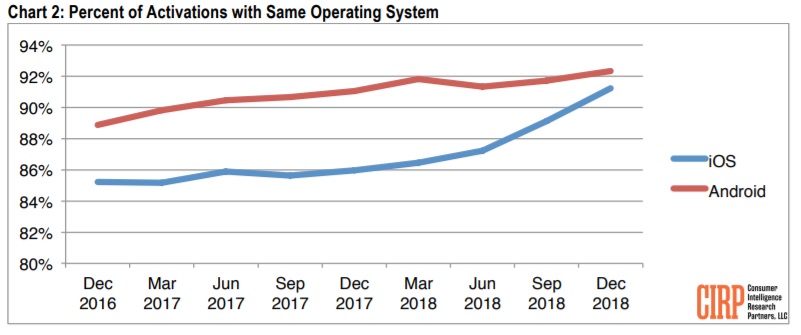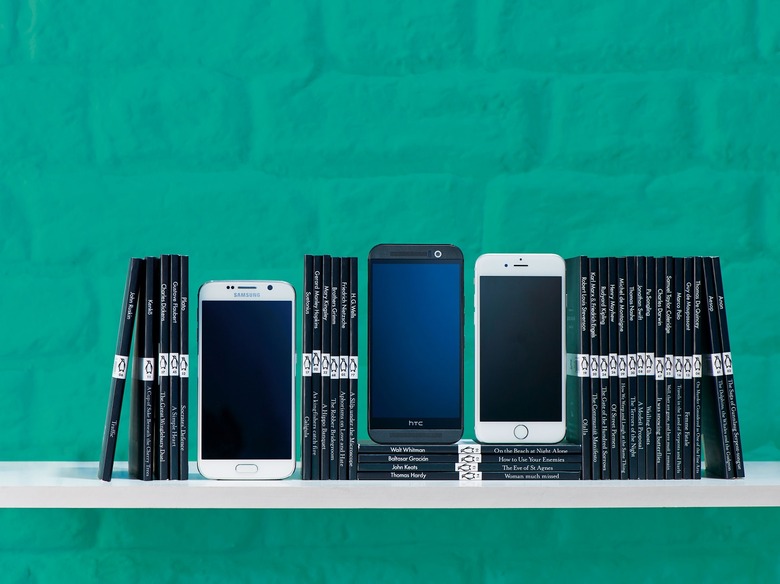Smartphone Users Are More Loyal To Operating Systems Than Ever
This likely won't come as a shock to many of you, but new research from Consumer Intelligence Research Partners (CIRP) shows that smartphone users are more likely to stick with the same mobile operating system than ever before. CIRP says that from October to December 2018, both Google's Android and Apple's iOS "enjoyed their highest loyalty rates measured to-date." If you got a new phone last quarter, chances are it had the same operating system as your previous phone, as the percentage of activations with the same OS was over 90% for Android and iOS.
While loyalty to iOS had lagged rather significantly behind Android over the past two years, iOS all but closed the gap last fall, jumping to 91%. Meanwhile, 92% of Android owners stuck with Google's mobile OS. You can see how quickly iOS caught up with Android in the chart below from CIRP:

"Loyalty hit the highest levels we've ever measured," said CIRP co-founder Mike Levin. "Both systems have seen loyalty trending upward for the past several quarters, as customers have become comfortable with the features and consistency oftheir operating system. Learning a new operating system takes effort, so fewer and fewer customers have found the need to switch. This, coupled with the quality and reliability of new phones is likely contributing to the longer upgrade cycles we are witnessing."
CIRP based its findings on a survey of 500 people in the US who activated a used or new phone in the December quarter last year. The report also shows that Android accounted for 62% of US activations during the quarter, while iOS sat at 37%. This is the fourth consecutive December quarter than iOS has trailed Android.
